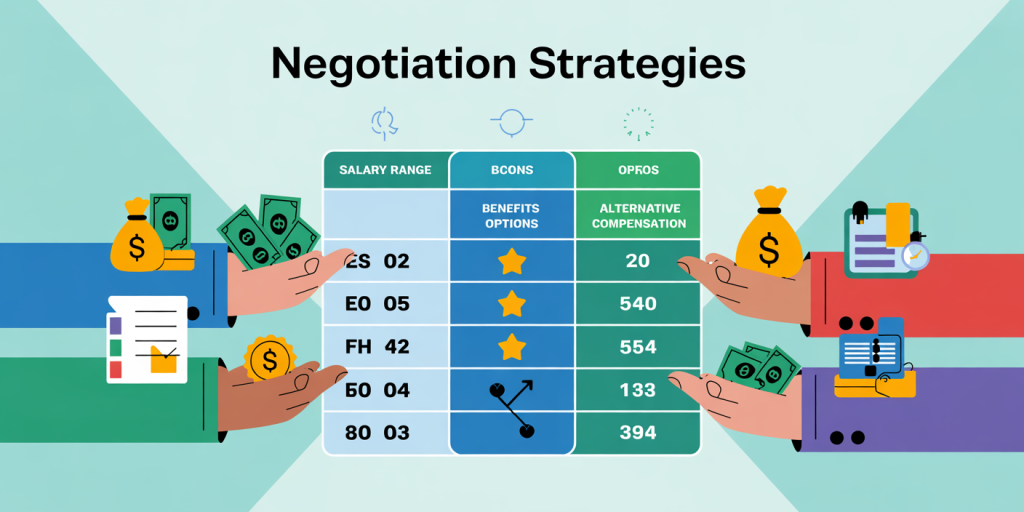How to Ask for a Raise (and Actually Get It)
Requesting a raise is both an art and a science, requiring careful preparation, strategic timing, and effective communication. Salary negotiations can be intimidating, but with the right approach, you can maximize your chances of success. This article will guide you through practical, actionable steps to not only ask for a raise but also secure it. By integrating real-world examples, data-driven insights, and proven negotiation tactics, you will gain a holistic understanding of the process.
Understanding the Context of Salary Negotiations
Salary discussions are more than just about numbers—they reflect your value within the company, your professional trajectory, and the broader economic environment. According to a 2023 survey by PayScale, approximately 70% of employees who negotiate their salaries receive an increase, highlighting the importance of initiating these conversations. However, timing and preparation are critical elements that can influence the outcome.

For example, consider Emily, a software engineer who waited until her annual review before discussing a raise. Because she had documented measurable achievements throughout the year, her negotiation was data-driven and persuasive, resulting in a 15% salary increase. In contrast, her colleague Mark, who asked for a raise based on vague feelings of underappreciation, was less successful due to a lack of tangible evidence.
Understanding the company’s financial health is equally important. If the company reports profit growth or is entering a period of expansion, it may be more open to salary reviews. Conversely, in a downturn, the emphasis might shift toward benefits or future compensation rather than immediate raises.
Preparing Your Case: Research and Documentation
The foundation of a successful raise request lies in thorough preparation. Begin by researching market rates for your position using resources like Glassdoor, LinkedIn Salary Insights, or local salary benchmarks. This data helps you establish a realistic and compelling figure that aligns with your skills and experience.

Document your achievements quantitatively—a practice valued highly in negotiations. For instance, if you increased sales by 20%, improved workflow efficiency by 30%, or led a project that saved the company $50,000 annually, make sure these accomplishments are clearly outlined. Employers respond well to concrete data as opposed to subjective claims.
A practical approach is to create a detailed portfolio or a “brag sheet” with chronological records of your contributions and awards. For example, Sarah, a marketing manager, used a slide deck that highlighted her campaigns’ ROI and recent client acquisitions, which made her raise request more convincing.
| Preparation Step | Purpose | Example |
|---|---|---|
| Market Research | Establish benchmark salary | Checking LinkedIn salaries for similar roles |
| Achievement Documentation | Provide evidence of value-add | Quantifying increased revenue or efficiency |
| Company Financial Review | Assess feasibility of raise request | Reviewing quarterly earnings reports |
Utilizing a comparative table like this in your preparation phase can help organize your approach and ensure you cover all bases before initiating the conversation.
Timing and Setting the Conversation
The moment you choose to broach the subject is as important as what you say. Aim to schedule your discussion around performance reviews, after successful project completions, or during company fiscal growth phases. This increases the likelihood that your manager will receive your request positively.
Psychological research shows that people are more receptive when approached at the right time. Choose a private, relaxed setting to avoid distractions and allow for an in-depth exchange. For example, companies like Google encourage managers to have quarterly “check-in” meetings, which serve as natural platforms for salary talks.
Be mindful of workload and company circumstances. In times of organizational stress or layoffs, a raise discussion might not be well received. Conversely, after a big win or promotion, it can be the perfect opportunity to ask.
Effective Communication: Framing Your Request
How you communicate your request often determines how it is received. Begin with expressing gratitude for your role and enthusiasm for your work. Transition naturally into your case by sharing evidence-backed achievements. Avoid demanding language; instead, use collaborative phrases like “I would like to discuss how my role and contributions could be reflected in my compensation.”
Practical example: when Jamie approached her manager at a tech firm, she said, “I enjoy the challenges of my projects and believe my recent work on streamlining our software updates has added significant value. I would like to explore adjusting my compensation to better reflect this contribution.”
Using data also enhances credibility. According to Harvard Business Review, negotiators who present specific accomplishments and market data increase their odds of success by 30%. Highlight both your performance and your understanding of the company’s goals.
Avoid personal financial reasons or comparisons with colleagues—focus instead on your professional value. Remain prepared for objections and respond calmly. For instance, if your manager cites budget constraints, you might ask about other benefits or the possibility of a future review tied to company performance.
Negotiation Strategies to Maximize Success
Negotiation is a dynamic interaction requiring flexibility and emotional intelligence. Begin with a clear salary range rather than a single figure to allow room for compromise. Use anchoring strategy—start with a higher figure based on your market research to set the tone for negotiation.
Know your alternatives by assessing your “BATNA” (Best Alternative to a Negotiated Agreement). If you have other job offers or opportunities, this strengthens your position. However, use this information judiciously; posing ultimatums can backfire if not handled tactfully.
Consider non-monetary perks when salary increases are limited. Companies may offer extra vacation days, remote work options, stock options, or education allowances. For example, during the COVID-19 pandemic, many companies unable to raise salaries offered flexible work benefits which employees valued highly.
Here’s a comparative breakdown of potential negotiation outcomes:
| Negotiation Outcome | Pros | Cons | When to Consider |
|---|---|---|---|
| Salary Increase | Immediate higher pay | May strain budget | Company financially stable |
| Performance Bonus | Reward based on results | Temporary, not permanent | Project completion milestones |
| Additional Benefits | Improved work-life balance, long-term perks | May not impact immediate salary | Budget constraints present |
| Job Title or Role Enhancement | Career growth potential | Might lack immediate financial impact | When salary change isn’t feasible |
Leveraging this framework allows you to advocate for a holistic compensation package aligned with your priorities.

Learning from Real-World Cases
The tech industry provides illustrative examples of successful raise negotiations. In 2022, a study by Levels.fyi analyzed salary negotiations and found that 60% of employees who prepared data-supported cases succeeded in raising their base salary by an average of 12%. Employees who merely asked without evidence typically received minimal or no increases.
Consider the story of Alex, a UX designer who wanted a raise after completing a patent for a novel interface design. He compiled a portfolio showing how his work contributed to increased user engagement, then requested a meeting post-project delivery. After a candid discussion supported by tangible metrics, he received a 14% raise along with author credits on the company website.
Conversely, those who fail to prepare adequately often leave money on the table. A case study from the Journal of Business Psychology highlighted a manager who requested a raise citing personal expenses but no professional achievements. Despite years with the company, the request was deferred, demonstrating the importance of focusing on business impact over personal need.
Future Perspectives: Positioning Yourself for Ongoing Growth
Securing a raise is a milestone, not the end point. The evolving workplace emphasizes continuous improvement and adaptability. To maintain upward momentum, cultivate skills aligned with emerging trends, such as AI integration, data analytics, or leadership development.
Collaboration with your manager on goal-setting can create clear benchmarks for future raises. For example, setting quarterly objectives linked to compensation reviews aligns expectations and reduces ambiguity.
Remote work and gig economy trends also influence salary norms. According to a 2024 Gartner report, companies are adopting more flexible compensation models that reward outcomes rather than hours worked. Staying informed about these trends prepares you to negotiate effectively within contemporary frameworks.
Moreover, cultivating a strong professional network and seeking mentorship can enhance your visibility and bargaining power. Engage in industry conferences, contribute to publications, and nurture relationships that can advocate for your value.
Ultimately, when asking for a raise, combining data-driven preparation, strategic communication, and future-focused mindset ensures not only an immediate salary increase but sets a trajectory for ongoing career advancement.
—
This comprehensive guide equips you with the tools necessary to confidently ask for a raise and significantly improve your chances of receiving it. Through research, clear communication, strategic negotiation, and future planning, you can transform a challenging conversation into a productive step towards professional growth.
